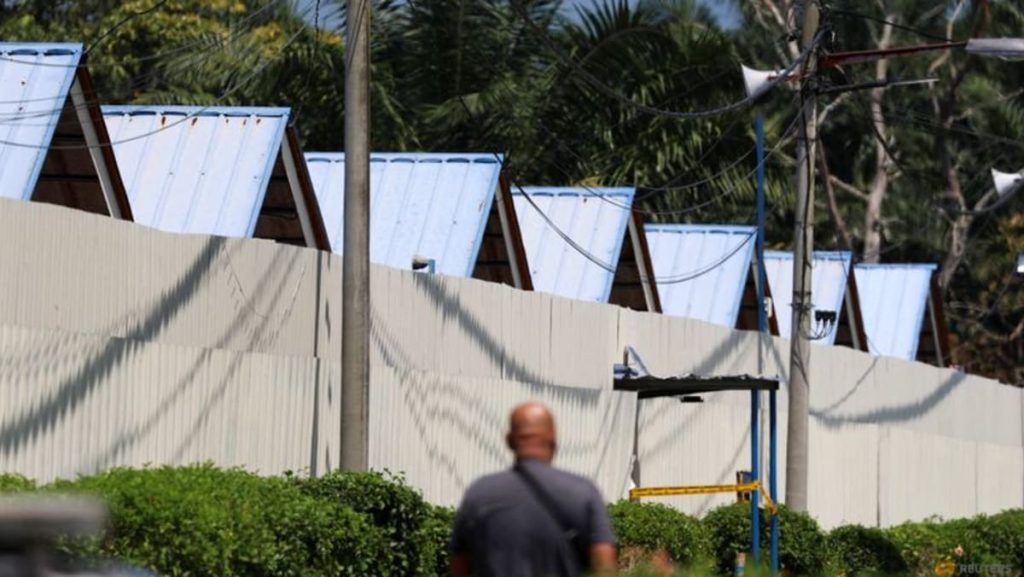The Malaysian Maritime Enforcement Agency (MMEA), also known as the Malaysian Coast Guard, has significantly amplified its patrol operations in the country’s territorial waters following the apprehension of nearly 200 undocumented Myanmar migrants on the resort island of Langkawi, located in the northwestern state of Kedah. This intensified surveillance effort aims to intercept two additional boats believed to be carrying more undocumented migrants from Myanmar, highlighting the ongoing maritime migration challenges faced by the Southeast Asian nation. The MMEA’s proactive response underscores the Malaysian government’s commitment to border security and addressing the complex issues surrounding irregular migration.
The initial group of 196 undocumented Myanmar migrants was apprehended in the early hours of Friday after their vessel landed on a Langkawi beach. While the exact identities and origins of the detained individuals haven’t been officially confirmed by the MMEA, media reports suggest they may be Rohingya refugees fleeing persecution in Myanmar. The Rohingya, a predominantly Muslim minority group, have faced systematic discrimination and violence in their homeland, leading to a large-scale exodus and a protracted humanitarian crisis. This influx of migrants puts a strain on receiving countries like Malaysia, which grapple with providing adequate resources and managing the social and economic implications of irregular migration.
The MMEA, under the leadership of Director-General Mohd Rosli Abdullah, has implemented a multi-pronged approach to locate the remaining two boats believed to be carrying undocumented migrants. This comprehensive search operation involves intensified patrols in the northern waters off Langkawi, focusing on known smuggling routes and areas susceptible to clandestine landings. Furthermore, the agency has deployed aerial surveillance to expand the search area and improve detection capabilities. This coordinated effort demonstrates the MMEA’s dedication to intercepting these vessels and preventing further undocumented entries into Malaysian territory.
Collaboration with regional partners is also a crucial component of Malaysia’s response to this maritime migration challenge. The MMEA is actively engaging with Thai authorities to share intelligence and coordinate efforts to track the movement of the migrant boats. This cross-border cooperation is essential for effectively addressing the transnational nature of human smuggling and irregular migration. By working together, Malaysia and Thailand can enhance their capacity to monitor maritime activity, share information on suspected smuggling operations, and ultimately prevent further tragedies at sea.
The arrival of these undocumented migrants underscores the ongoing humanitarian crisis affecting the Rohingya population. For years, the Rohingya have faced persecution and violence in Myanmar, forcing them to seek refuge in neighboring countries. Their perilous journeys across the sea often involve overcrowded and unsafe vessels, placing them at immense risk. The international community has expressed concern over the plight of the Rohingya and called for greater efforts to address the root causes of the crisis and provide humanitarian assistance to those affected.
The Malaysian government’s response to this latest influx of undocumented migrants reflects the country’s complex and evolving approach to migration management. While Malaysia has been criticized in the past for its treatment of refugees and asylum seekers, the increased patrols and search efforts demonstrate a commitment to securing its borders and addressing the immediate challenges posed by irregular maritime migration. However, the long-term solution lies in addressing the root causes of displacement and finding sustainable solutions for the Rohingya and other vulnerable populations seeking refuge. This requires a concerted international effort involving humanitarian aid, diplomatic pressure, and the creation of safe and legal pathways for migration. The current situation highlights the urgent need for a comprehensive and compassionate approach to this complex issue.

